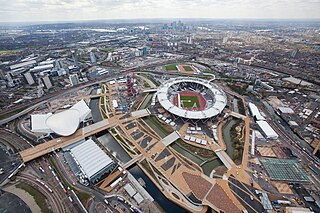
A multi-sport event is an organized sporting event, often held over multiple days, featuring competition in many different sports among organized teams of athletes from (mostly) nation-states. The first major, modern, multi-sport event of international significance was the Olympic Games, first held in modern times in 1896 in Athens, Greece and inspired by the Ancient Olympic Games, one of a number of such events held in antiquity. Most modern multi-sports events have the same basic structure. Games are held over the course of several days in and around a "host city", which changes for each competition. Countries send national teams to each competition, consisting of individual athletes and teams that compete in a wide variety of sports. Athletes or teams are awarded gold, silver or bronze medals for first, second and third place respectively. Each game is generally held every four years, though some are annual competitions.

The Maccabiah Games, first held in 1932, are an international Jewish and Israeli multi-sport event now held quadrennially in Israel. The Maccabiah Games are open to Jewish athletes from around the world, and to all Israeli citizens regardless of their religion. It is the third-largest sporting event in the world by number of competitors, with 10,000 athletes competing. The Maccabiah Games were declared a "Regional Sports Event" by, and under the auspices and supervision of, the International Olympic Committee in 1961.

For the 2001 16th Maccabiah Games, the Opening Ceremony was held in Jerusalem at Teddy Stadium, while the re-building process of the collapsed bridge and investigations into the collapse continued. The 16th Maccabiah attracted more than 5,000 athletes from 46 countries.

The 2005 Maccabiah Games, held in Israel, were the 17th incarnation of the 'Jewish Olympics.' They attracted the largest attendance of any Maccabiah Games, including more than 900 representatives from the United States, almost 500 from Australia, and more than 2,000 from Israel, bringing the total participants to more than 7,700 from 55 countries.

At the 1977 Maccabiah Games in Israel, 2,700 athletes from 33 countries participated in 26 different sports.

The 1981 11th Maccabiah Games brought 3,450 athletes to Israel from 30 nations.
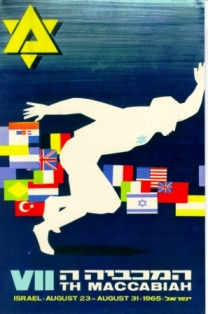
The 7th Maccabiah Games in 1965 saw 1,500 athletes from 29 different countries compete in 21 sports. It was the first Maccabiah Games for Iran, Jamaica, Peru, and Venezuela. The United States delegation won the most gold medals, followed by Israel, the United Kingdom, South Africa, Mexico and the Netherlands, Southern Rhodesia, Australia, Argentina and Italy, and Brazil, Canada, Denmark, and Sweden with one each.
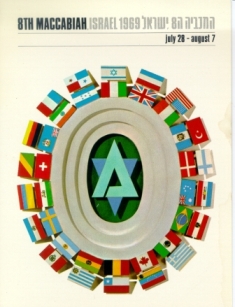
At the 8th Maccabiah Games from July 29 to August 7, 1969, 1,450 athletes from 27 countries competed in 22 sports in Israel. The final gold medal count was the United States in first place (64), Israel second, and Great Britain third (11).
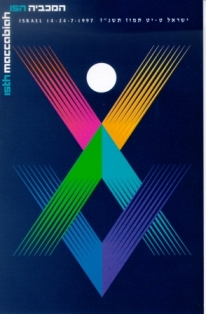
The 1997 Maccabiah Games are remembered for being marred by a bridge collapse that killed several participants.

The 2nd Maccabiah, aka the Aliyah Olympics, which was held in April 1935, was the second edition of the Maccabiah Games. The games were held despite official opposition by the British Mandatory government. A total of 28 countries were represented by 1,350 athletes.

The 1973 Maccabiah Games, which were held from July 9 to 19, 1973, were opened in Ramat Gan Stadium, Israel. Spain and Costa Rica made their debuts in the Games. A total of 1,800 athletes competed on behalf of 27 countries in 20 branches of sport, in 30 venues across Israel. The Games took place ten months after the 1972 Summer Olympics in Munich, where 11 Israeli athletes and coaches were slain during the Munich Massacre. The United States won 76 gold medals, and Israel was next with 60 gold medals.

The 1993 Maccabiah Games was the 14th Maccabiah Games, and brought 5,100 athletes to Israel from 48 nations.
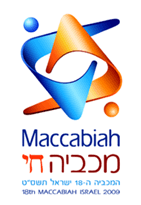
The 2009 Maccabiah Games, the 18th incarnation of the Maccabiah Games, were held in July 2009. According to the organizing committee these were the largest games held yet. These Games were the world's fifth-largest sporting event, behind the Olympic Games, Commonwealth Games, World Police and Fire Games, and Universiade. On the 13 July, more than 6,000 Jewish athletes from all over the world joined Team Israel's 3,000 participants at the Ramat Gan Stadium in Tel Aviv District, Israel, for the opening ceremony. American swimmer Jason Lezak was given the honor of lighting the Maccabiah torch at the Opening Ceremony.

The Maccabiah bridge collapse was the catastrophic failure of a pedestrian bridge over the Yarkon River in Tel Aviv, Israel on July 14, 1997. The collapse of the temporary metal and wooden structure killed four and injured more than 60 Australian athletes and other team delegates who were visiting Israel to participate in the Maccabiah Games. One athlete died in the collapse and three died afterwards due to infections caused by exposure to the polluted river water. A subsequent investigation found that negligent shortcuts had been taken in the bridge's construction, mandatory permits and oversight had not been obtained, and the bridge's construction did not meet government requirements.

Rugby union has been played in the Maccabiah Games since 1981. The variety played is the 15-a-side version, rather than rugby sevens.

Shawn Lipman is an American South African-born rugby union player.

The 19th Maccabiah were the 19th incarnation of the Maccabiah Games, which took place July 18 to 30, 2013.

Maccabiah sports are official sports contested at the Maccabiah by the International Maccabiah Committee (IMC). Recent Maccabiah games included over 40 different sports.

The 2017 Maccabiah Games, also referred to as the 20th Maccabiah Games, were the 20th edition of the Maccabiah Games. They took place from 4 to 17 July 2017, in Israel. The Maccabiah Games are open to Jewish athletes from around the world, and to all Israeli citizens regardless of their religion. A total of 10,000 athletes competed, a Maccabiah Games record, making the 2017 Maccabiah Games the third-largest sporting competition in the world. The athletes were from 85 countries, also a record. Countries represented for the first time included the Bahamas, Barbados, Cambodia, the Cayman Islands, Haiti, Malta, Morocco, the Philippines, Singapore, South Korea, and Trinidad. The athletes competed in 45 sports.
The 2022 Maccabiah Games took place in Israel from July 14-25, 2022, and are also referred to as the 21st Maccabiah Games. The Maccabiah Games are open to Jewish athletes from around the world, and to all Israeli citizens regardless of their religion. Israeli former Olympic judo medalist Arik Zeevi served as Maccabiah Chairman. Athletes from 80 countries competed in 42 sports categories. With 10,000 athletes participating, this was the largest Maccabiah Games ever.

















